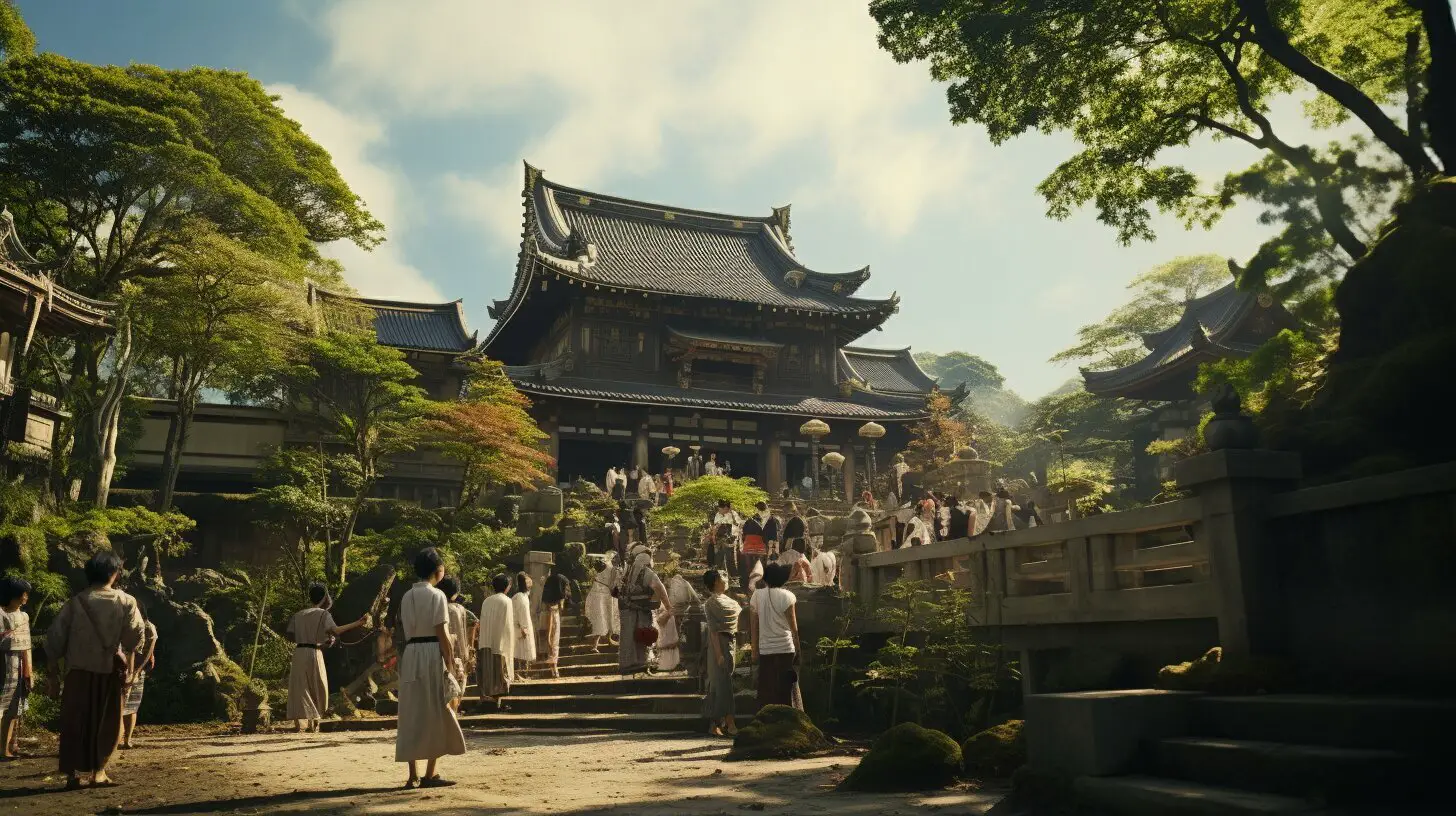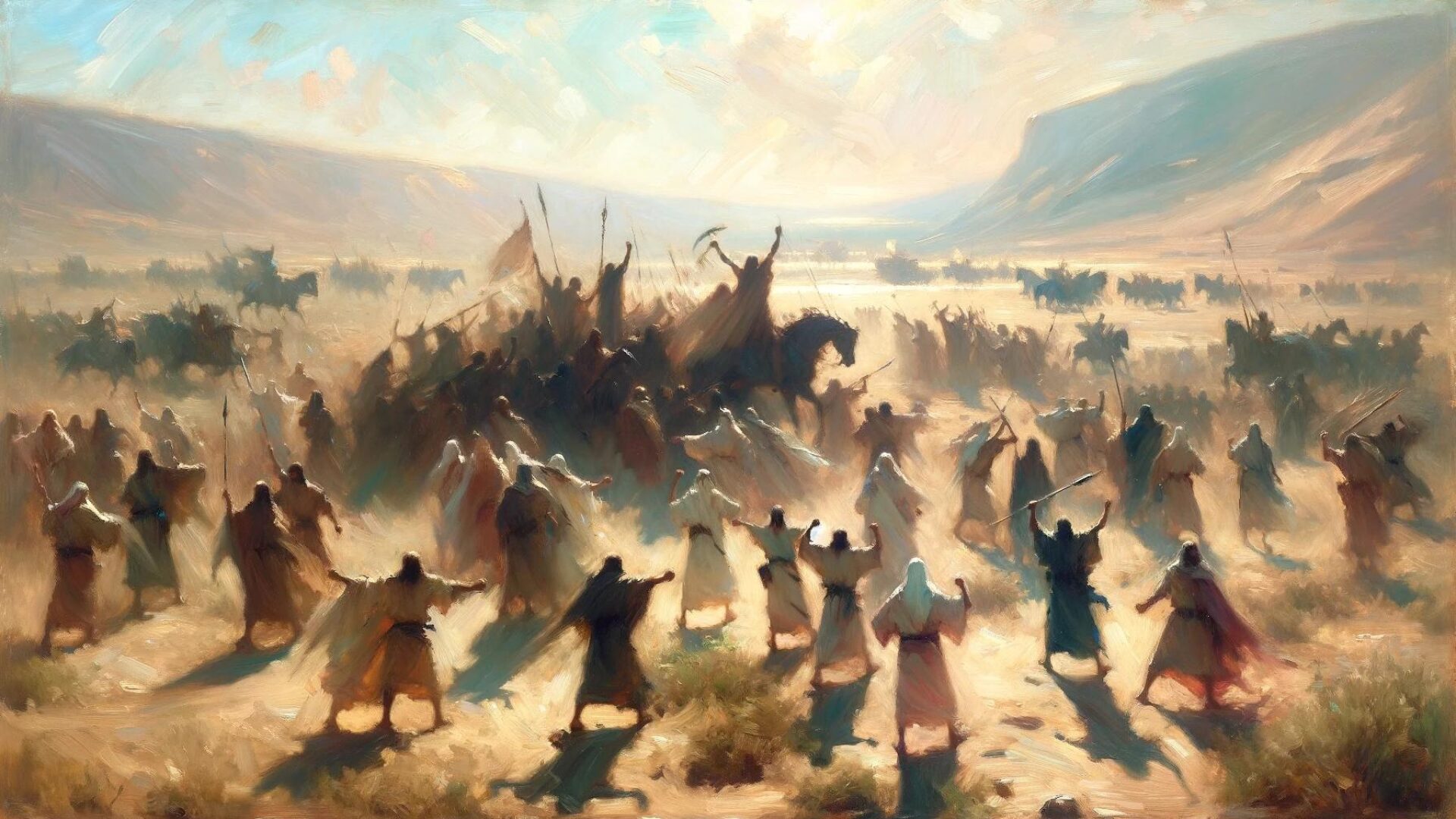Christian missionaries played a significant role in shaping Japanese society and culture. Their teachings and values had a profound impact on religious beliefs, education, arts, and the overall transformation of Japan’s identity.
The arrival of Christian missionaries in Japan began during the 16th century, when Jesuit and Franciscan missionaries arrived on Japanese shores. They were met with an initial welcome, and Christianity started to spread throughout the area. However, the religion faced significant challenges, including cultural differences, resistance from traditional Japanese customs and beliefs, and political pressures.
Despite these setbacks, Christian missionaries continued their mission to introduce their teachings and assimilate into Japanese culture. They adapted to local customs and practices while promoting their religious message. As a result, Christianity continued to spread, and the religion had a lasting impact on Japanese society and culture.
Key Takeaways
- Christian missionaries played a significant role in shaping Japanese society and culture.
- The arrival of Christian missionaries in Japan began during the 16th century
- Christianity faced challenges, including cultural differences, resistance from traditional Japanese customs and beliefs, and political pressures.
- Christian missionaries adapted to local customs and practices while promoting their religious message.
- The religion had a lasting impact on Japanese society and culture.
The Arrival and Early Influence of Christian Missionaries in Japan
Christianity first arrived in Japan during the 16th century when Portuguese traders introduced the religion to the country. The first Christian missionaries, including Francis Xavier, arrived in 1549, initially focusing on the southern island of Kyushu. They faced many challenges, including resistance from the local Buddhist and Shinto communities and the strict control of the ruling feudal lords.
Despite these obstacles, Christian teachings soon began to spread, with the number of converts increasing rapidly. The missionaries established churches, schools, and hospitals, and their message of salvation and forgiveness resonated with many Japanese people.
The Role of Christian Missionaries in Shaping Japanese Society and Culture
The influence of Christian missionaries in Japan was significant, particularly in the development of modern Japanese society and culture. They played a crucial role in shaping the country’s religious beliefs, education, and even artistic style.
Furthermore, Christian missionaries introduced new concepts and practices, such as charity and social welfare, that were previously unknown in Japan. They also promoted literacy and education, with many of the country’s early schools and universities being established by Christian organizations.
Christian missionaries also had an impact on Japanese art and literature, with many artists and writers incorporating Christian themes and motifs into their works. This fusion of Christianity and Japanese culture can still be seen today in the country’s unique artistic traditions.
“Christianity brought to Japan a new spirit and a new way of looking at the world, which helped to shape the country’s modern identity.”
Despite facing many challenges and setbacks, Christian missionaries had a lasting impact on Japanese society and culture. Their legacy can still be seen today in the Christian communities they established, the educational institutions they founded, and the ongoing presence of Christianity in Japan.
Challenges Faced by Christian Missionaries in Japan
Christian missionaries faced numerous challenges in their efforts to spread their religious message in Japan. One of the most significant challenges was the fundamental differences between Japanese traditions and Christian beliefs.
The missionaries struggled to communicate their message to the Japanese people, who were deeply rooted in their own cultural and religious practices. The concept of a single God was difficult for many Japanese to understand, and the practice of worshiping images was deeply ingrained in Japanese religion.
At the same time, the missionaries faced political pressures, as the Shogunate government feared that Christianity posed a threat to the stability of the country. In 1587, the Shogun issued an edict banning Christianity and ordering all missionaries to leave the country. Despite this, many missionaries continued to work underground, secretly converting Japanese people to Christianity.
Another challenge was the resistance to change from traditional Japanese customs and beliefs. Many Japanese people saw Christianity as a foreign religion and rejected it as a threat to Japanese identity. The missionaries had to find ways to adapt and assimilate their message to make it more appealing to the Japanese people.
Perseverance and Adaptation
Despite these challenges, Christian missionaries persevered in their mission. They learned the Japanese language and culture to better communicate the Christian message to the Japanese people. They also adapted their message to incorporate elements of Japanese culture, such as incorporating Christian teachings into traditional Japanese art forms like calligraphy and painting.
Their efforts paid off, as Christianity began to gain a foothold in Japan. Some Japanese people were drawn to the religion’s emphasis on compassion, forgiveness, and social welfare, which were in sharp contrast to the hierarchical and often rigid values of traditional Japanese culture.
Overall, the challenges faced by Christian missionaries in Japan forced them to be creative and adaptable in their efforts to spread their message. Their perseverance and willingness to learn and adapt to Japanese culture proved critical in the eventual spread and acceptance of Christianity in Japan.
Influence of Christian Missionaries on Japanese Religious Beliefs
Christian missionaries had a profound impact on Japanese religious beliefs, introducing new concepts and practices that still exist today. One of the most significant changes was the introduction of monotheism, which challenged the traditional Japanese beliefs in polytheism and ancestor worship.
The early Christian missionaries also introduced new religious practices such as the use of the cross, liturgy, and the Bible. The spread of Christianity led to the creation of new communities and the establishment of churches and other religious institutions throughout Japan.
However, Christian missionaries faced challenges in their efforts to convert Japanese people to their faith. Many Japanese adhered to traditional beliefs and customs that were deeply rooted in their society and culture. The language barrier was another significant obstacle, as the missionaries had to learn Japanese in order to communicate effectively with the local people.
Despite these challenges, Christian missionaries made significant headway in converting the Japanese population to Christianity. Over time, the missionaries began to blend Christianity with local religious practices, creating a unique blend of religion that still exists in Japan today.
Today, Christianity is a minority religion in Japan, with less than 1% of the population identifying as Christian. However, the impact of Christian missionaries on Japanese religious beliefs is still felt today, as many aspects of Christianity have been integrated into Japanese culture and society.
Transformation of Japanese Society and Culture through Christian Teachings
The impact of Christian missionaries on Japanese society and culture cannot be overstated, as their teachings had a profound and lasting effect on various aspects of Japanese life. For instance, Christian values strongly influenced Japanese literature, art, and architectural styles.
Christian missionaries introduced new concepts and practices that blended with local religious traditions, resulting in a unique syncretistic religious landscape in Japan. Moreover, their teachings on education, social welfare, and healthcare led to significant changes in Japanese society.
Christianity’s Influence on Japanese Arts and Literature
Christian missionaries introduced new artistic styles and practices that were different from traditional Japanese forms of art. For instance, they promoted the use of Western painting, sculpture, and music, which significantly impacted the Japanese art scene. Moreover, Christian values, such as compassion and forgiveness, influenced Japanese literature, leading to the development of new literary genres like the “Shisho Setsu” (I-novel).
Christian missionaries also played a crucial role in the development of modern Japanese architecture, as they brought new building techniques and designs that were more functional and modern. For example, the renowned architect Antonin Raymond, a Catholic convert and former assistant to Frank Lloyd Wright, introduced modernist architecture to Japan and developed innovative designs that blended with traditional Japanese architectural styles.
The Legacy of Christian Missionaries in Japanese Society
Christian missionaries played a significant role in shaping the socio-cultural landscape of Japan. Their arrival in the 16th century brought new ideas and practices that challenged traditional Japanese customs and beliefs. While their initial attempts at conversion were met with resistance, over time, they managed to establish footholds in the country and leave an enduring legacy.
One of the most significant contributions of Christian missionaries to Japan was the formation of Christian communities. These communities created a sense of belonging for Japanese converts, who found solace in their newfound faith. Additionally, through these communities, Western ideas and practices were introduced to Japan, leading to the establishment of educational institutions.
The introduction of education was a crucial component of Christianity’s influence on Japanese society. Missionaries founded schools that taught not only Christian dogma but also critical thinking and problem-solving skills. As a result, the literacy rate in Japan increased, and many students became leaders in different fields, including business, politics, and education.
Christian values also had a significant impact on Japanese culture, particularly in the arts. The introduction of Christian teachings inspired new forms of expression, which blended Western and Japanese traditions. For example, literature, music, and architecture all underwent significant transformations as a result of Christian influence.
The legacy of Christian missionaries in Japan is far-reaching. Their influence can still be seen in modern-day Japan, where Christianity remains a minority religion. However, the values and ideas they introduced continue to shape Japanese society and culture. Overall, the legacy of Christian missionaries in Japan is one of transformation and enduring impact, both on the country and on its people.
Contemporary Perspectives on Christian Missionaries in Japan
Despite the significant impact that Christian missionaries had on Japanese society and culture, their legacy remains a subject of ongoing debate.
Some contemporary perspectives are critical of the role that Christian missionaries played in the transformation of Japanese religious beliefs and traditional customs. Critics argue that the introduction of Christianity disrupted the longstanding spiritual practices and cultural norms of Japanese society.
However, others argue that the influence of Christianity on Japanese culture has been largely positive. They point to the role that Christian missionaries played in establishing educational institutions that helped shape modern Japanese society. These institutions focused on values such as equality, individualism, and democracy, which are viewed as essential to contemporary Japanese culture.
Contemporary perspectives on the impact of Christian missionaries on Japanese culture are complex and multifaceted, highlighting both the opportunities and challenges that arose from their presence in Japan.
Christianity and Japanese Cultural Traditions
One area of ongoing debate is the relationship between Christianity and traditional Japanese customs. Some argue that the influence of Christianity on Japanese culture has been largely negative, leading to a loss of traditional values and spiritual practices.
However, others suggest that Christianity has played a constructive role in blending traditional Japanese values with Christian teachings. Proponents of this view point to the unique form of Japanese Christianity that emerged, which combined elements of both traditional Japanese spirituality and Christian theology.
The ongoing debate surrounding the influence of Christian missionaries on Japanese culture highlights the complexity of their legacy, both in Japan and around the world.
Conclusion
Christian missionaries had a profound impact on Japanese society and culture. They faced numerous challenges while attempting to spread their message, including cultural differences, resistance from traditional beliefs, and political pressures. However, their teachings and values ultimately influenced Japanese religious beliefs, education, arts, and even the formation of Christian communities.
The arrival of the first Christian missionaries in Japan marked the beginning of a shift in religious beliefs and practices. The blending of Christianity with local religious traditions led to the emergence of a unique religious landscape in Japan. Additionally, Christian missionaries played a significant role in the transformation of Japanese society, particularly in areas like education and social welfare.
The impact of Christian missionaries can also be seen in Japanese literature, art, and architecture. Their teachings and values influenced the work of many Japanese artists and writers, leading to the creation of new forms of expression.
The legacy of Christian missionaries in Japanese society is still felt today. Their influence on education and the establishment of institutions like schools and hospitals helped to shape modern Japan. Christians continue to practice their faith in Japan, with a significant presence in both urban and rural areas.
Contemporary perspectives on Christian missionaries in Japan are varied. While some praise their contributions to Japanese society and culture, others criticize their role in the spread of Western imperialism. The ongoing debates surrounding their historical role reflect the complex relationship between Christianity and Japanese cultural traditions.
Overall, the impact of Christian missionaries in Japan was significant and enduring, shaping the country’s religious, cultural, and social landscape in countless ways.
FAQ
Q: How did Christian missionaries influence Japanese society and culture?
A: Christian missionaries played a significant role in shaping Japanese society and culture through their teachings and values. They introduced new concepts and practices, influenced religious beliefs, and made lasting contributions to areas such as education, social welfare, and the arts.
Q: What challenges did Christian missionaries face in Japan?
A: Christian missionaries faced challenges in Japan, including cultural differences, resistance from traditional customs and beliefs, and political pressures. Despite these challenges, they made efforts to adapt and assimilate while promoting their religious message.
Q: How did Christian missionaries influence Japanese religious beliefs?
A: Christian missionaries had a significant impact on Japanese religious beliefs. They introduced new concepts and practices, blended Christianity with local religious traditions, and played a role in shaping the religious landscape of Japan.





